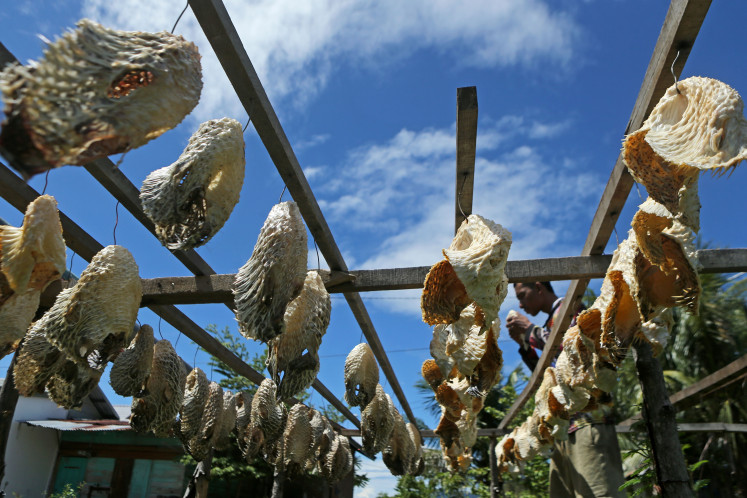Expanding food safety norms for nutrition
On April 23, the World Trade Organization is hosting the International Trade and Food Safety Conference in Geneva. It is a continuation of the debates to discuss the future of food safety.
Change text size
Gift Premium Articles
to Anyone
 Canned food lined up on shelf with nutrition fact label (Shutterstock/BCFC)
Canned food lined up on shelf with nutrition fact label (Shutterstock/BCFC)
O
n April 23, the World Trade Organization is hosting the International Trade and Food Safety Conference in Geneva. It is a continuation of the debates to discuss the future of food safety, which started in Addis Ababa, Ethiopia, last February, in a successful event co-organized by the Food and Agriculture Organization of the United Nations (FAO), the World Health Organization (WHO) and the African Union.
Food safety is associated, rightly, with the risk of food-borne illness caused by unwanted bacteria such as E.coli or listeria, or fungal pathogens such as aflatoxin. The main such hazards are responsible for around 600 million people falling ill each year and 420,000 deaths around the world, with the populations of Africa and Southeast Asia bearing the highest burden.
However, the time is ripe to expand our understanding of what is at stake. Food safety cannot be only about preventing people from getting food poisoning or falling sick due to food-borne illnesses, but must tackle the full spectrum of diet-related health risks
This is particularly the case of obesity. Globally, there are more than 670 million obese adults. Some projections estimate that the number of obese people will soon overtake the number of people suffering from hunger — 821 million people in 2017. This has already happened in Latin America and the Caribbean region.
In fact, while hunger is circumscribed to specific areas, particularly conflict areas, obesity is everywhere. The world is witnessing the globalization of obesity. In fact, 7 percent of youth between 5 and 19 years old are obese today, up from less than 1 percent some 40 years ago. And obesity is not only a rich-world problem; eight of the 20 countries with the fastest rising rates are in Africa.
The consumption of ultra-processed food is one of the main reasons behind the alarming and growing levels of obesity — and associated non-communicable diseases such as diabetes and hypertension — which ultimately costs about US$2 trillion a year in global healthcare costs and lost economic productivity.
And yet large amounts of that ultra-processed food — typically loaded with saturated fats, refined sugar, salt and chemical additives — is still considered safe for consumption.

















